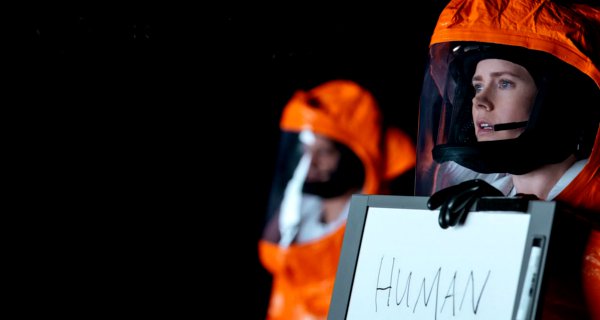Arrival Review
Science fiction might have a reputation as a niche genre, but sci-fi movies have also proved, over the course of film history, to be among the most socially important. It’s not often that those important ones come along, but time could prove “Arrival” to be one of them.
French-Canadian director Denis Villeneuve’s latest success comes in the tradition of films such as “The Day the Earth Stood Still” — an alien invasion story that is less about our fascination with life on other planets and more about using aliens as a way to hold a mirror up to humanity.
Although a dozen giant black sideways dome-shaped spaceships (called “shells”) parking themselves all over the world suggests a story of a grand scale, “Arrival” is actually rather intimate, focusing mostly on Amy Adams’ character Louise, the country’s top language expert, who’s recruited by the government to try and communicate with the aliens. With a team of military personnel and the help of Ian, a physicist (Jeremy Renner), Louise attempts to decode the aliens’ written language and discern their purpose on Earth.
Components of “Arrival” feel like a methodical mystery as Louise and Ian make progress and inch closer to the truth. Meanwhile, the pressure mounts as the rest of the world is panicked, and China and Russia — among other countries – consider different and potentially more volatile tactics to get answers.
Villeneuve is not a typical genre filmmaker, which is what makes his genre films of the last few years so unique. He’s much more patient and methodical, which forces audiences to soak in the atmosphere and tone of his films. This style lends itself well to the mysterious nature of the story. It engages the viewer with a perpetual curiosity that helps to offset any potential concerns of genre fans that it might be too boring.
Adams also proves the perfect main subject. She makes even the most mundane exposition sound important and she brings such deep humanity into every role she plays, which turns out to be crucial to “Arrival” in particular, given what screenwriter Eric Heisserer (based on a story by Ted Chiang) is trying to say about the human condition.
“Arrival” packs a big third act twist, but the joy of discovering it isn’t as important as the philosophical ideas that accompany it. This is a film for theorists and nerdy intellectuals to really sink their teeth into (or perhaps even tear apart the scientific validity of), yet at the same time there’s room for just about anyone, not just fans of the genre and these big theoretical questions, to partake in the conversation.
There are actually a couple thematic components to the story that while equally interesting and deserving of attention, in a way split the film’s catharsis in two. Both of these big ideas can certainly draw out an emotional response on their own, and viewers might find that one resonates more than the other and lean toward that particular idea as being the central theme of the film, but each has enough prominence that one diminishes the power of the other. It’s difficult to complain about a film that has too much good stuff packed into it, but this multi-faceted message causes “Arrival” to end on a mental/cognitive note than the emotional one we most often desire in films, even for all the emotional notes it strikes.
No matter how the ending hits you, however, “Arrival” has an undeniable social relevance, to the point that it actually became more relevant less than a week after its Nov. 4 release than it already was. This is the kind of film that will unfortunately resonate with people who see it generations from now, but we’re certainly better off having “Arrival” as a work of art we can relate to than to not have it at all.
4.5/5 Stars
Arrival
Directed by Denis Villeneuve
Written by Eric Heisserer (based on a story by Ted Chiang)
Starring: Amy Adams, Jeremy Renner, Forest Whitaker







0 Comments
You can be the first one to leave a comment.